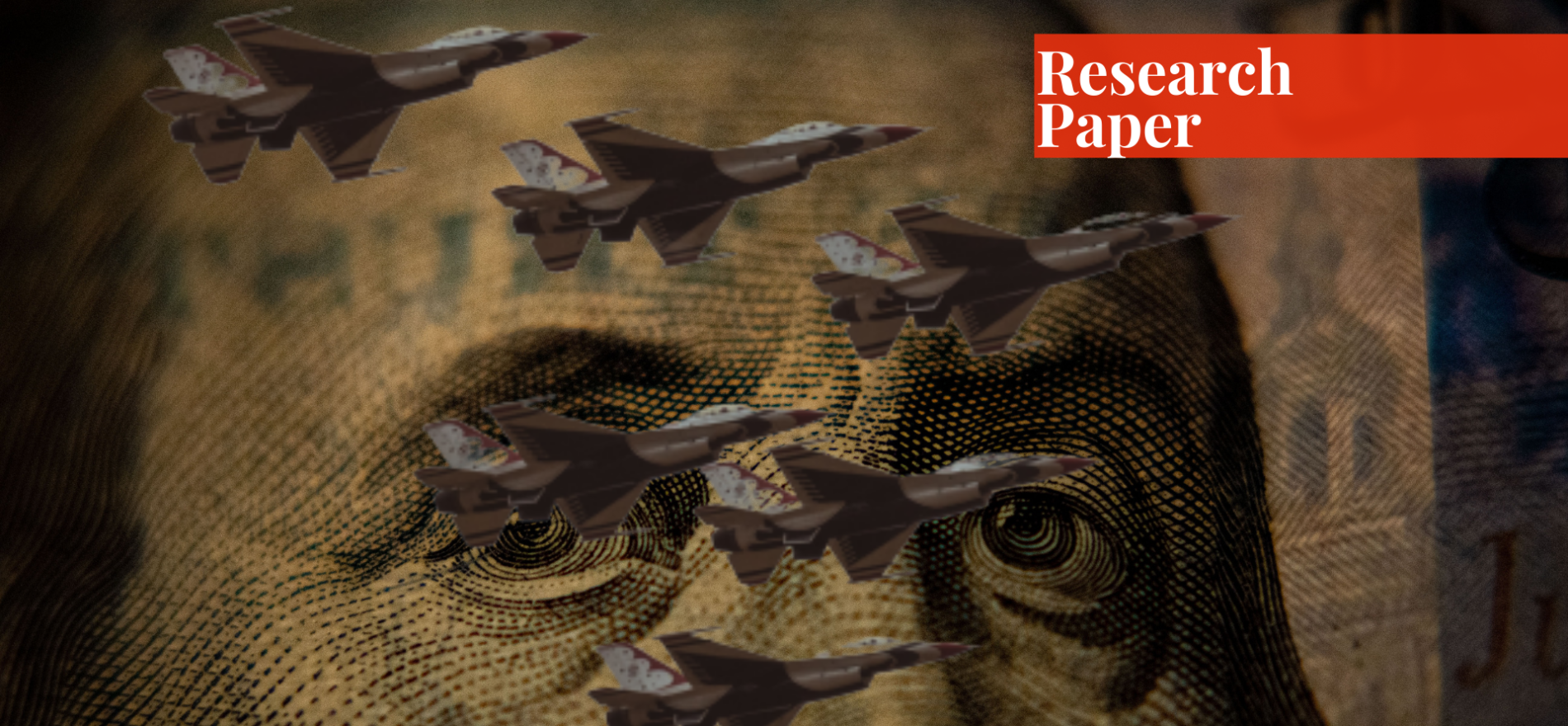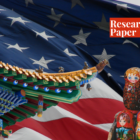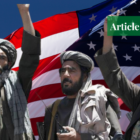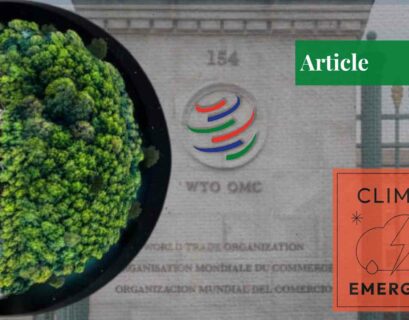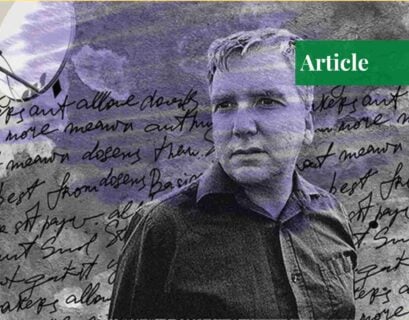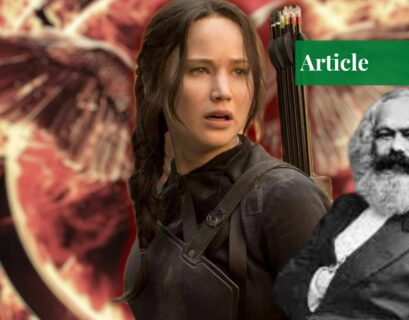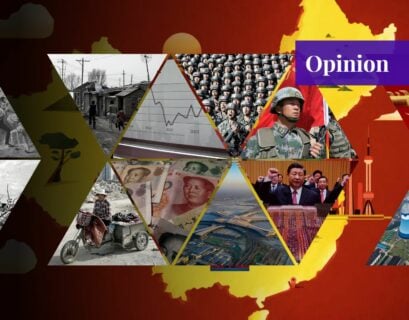Syed Qasim Abbas is a student of law at the Lahore University of Management Sciences (LUMS). His prime focus, and area of interest, is international law, under the light of which, he analyzes international diplomacy.
Introduction
Colonial developments between the 16th and the 18th century became foundational moments that laid the bright chances of having an interactive global trade system with transnational and cross-border exchanges of goods. This idea was continued during the era of globalization; one of the many outputs of a more interactive world was the development of a global market with various trade synergies.1 The gradual rise of global commerce led to “economic interdependence”, which economic liberals deem the reason for peace.
This interdependence and global commerce strengthened trade relations by dispersing the means of production across the world, depending on the specializations of various states. The production process required states to interact and global capitalism served to integrate the world.
However, growing trade relations and economic interdependence were not the only evolving aspect of the modern world. There was also a substantial decrease in the states’ interests in armed conflicts.2 The simultaneous occurrence of these evolving changes invited scholarly attention and some international relations scholars framed global peace as a positive externality to rising global commerce.3
Conceiving globalization as an expansion of the market, its integration provides a compelling argument that global capitalism and economic interdependence lead to peace.4 This has its roots in the economic liberal tradition, inspired by the ideas of Immanuel Kant. It projects from Kant’s explanation of the state of nature where peaceful co-existence is not possible. Kant’s proposition for ending the state of nature is to develop a “state” through a contract, which ensures cooperation amongst people.5
From here, Kant’s ideas diverge in two distinct directions as they explain the development of a peaceful order while laying the foundation for the liberal theory. The first aspect lays the foundation for the argument that free economic interaction acts as a “moralizing agent”, while the second aspect builds the importance of a “republic” in ensuring peace.6
This paper begins with an explanation of the economic liberal theory and its correlation with international peace. It then critiques economic interdependence as the sole contributor to developing global order by illustrating a range of theoretical gaps in the economic liberal theory and its sociological effects.
Lastly, the paper uses alternate liberal interpretations of Kant’s theory such as the democratic peace theory (DPT), as well as realist and mercantilist critiques of economic interdependence, to argue that the reduced interest in armed conflict is a complex phenomenon that cannot be explained by economic interdependence alone.
The Theory of Economic Liberalism
The basis of economic liberalism is Kant’s arrangement of a free market. Markets without bureaucratic control and economies—domestic or international—with private property rights help develop trade ties between private individuals on international fronts. International trade ties deter the choice of armed conflict by increasing its opportunity cost.
Countries having strong trade relations are less likely to indulge in conflict because of higher welfare losses and a reduction in the supply of strategic goods like oil. Studies by Polachek, Robst, and Chang reiterate a negative relationship between “bilateral trade volume and frequency of interstate military conflict”.7
The explanation of economic interdependence as a causal mechanism to global peace lies in the cost-benefit analysis state institutions perform before making an active choice of armed conflict. Richard Rosecrance argues that as a consequence of trade growth, “economic interdependence” and “the system” grow side by side.8 A growing economy creates chances for higher military budgets and the incorporation of complex technology in defense mechanisms.
Thus, in the case of a “zero-sum” competition scenario, where two states enter into conflict over a commodity, territory, or an interest they cannot pursue together, they opt for a “non-zero-sum” dispute settlement.9 Considering that armed conflict would only be an outcome if its benefit exceeds its cost, economic interdependence has made warfare so expensive that states hardly opt for war.
According to the theory of costly contests by Fearon, war only results if states are unaware of the secret strategic cost of their opponent and propose a bluff that exceeds the opponent’s interest in peace resulting in an armed conflict.10 One aspect of the argument illustrates that the potential benefits of economic interdependence outweigh the interests in armed conflict, thus demeaning it.11 The other aspect tracks the ability of economic interdependence to be able to “naturally” influence people to opt for peace.
The writings of Adam Smith, David Hume, and Baron de Montesquieu explain that gradual growth of commerce leads to greater synergy as it acts as a “moralizing agent”.12 Moreover, Montesquieu and James Steuart argue that economic interdependence also served to provide mobility to capital. Its occurrence shifted the focus from territory and land to moveable capital because it could be kept secure easily. The accumulation of this capital is the consequence of good governance between states that leads to better trade.
Norman Angell elaborates by evaluating the personal interests of the sovereign that the development of a strong economic integrated world meant that conquering and plundering more territory did not increase the conqueror’s wealth. Gradually, the desire of expansion expressed by monarchs died as a highly commercialized system produced more incentives of peace than war because peace led to more capital accumulation through trade.
Similarly, Coben analyzes the effects of interdependence in terms of class explaining that it reduces the incentive for armed conflict by undermining the position of the landlords. The mobility of capital forces nations to recognize that their own economic prosperity is owed to the prosperity of another state hence cooperation becomes a means to progress.
Criticism on the Theory and the Response of Economic Liberals
One of the major critiques that the economic liberal theory faces is its seeming lack of scope. It is highly debated that liberal theories only focus on the western world and the power dynamics of western and European states. Critics argue that proponents of economic interdependence ignore the causes of peace in places like South Asia and Southeast Asia.
To them, the economic liberals extend the application of the theory by arguing that much of the peace in the South Asian regions is owed to a sociological change which is the byproduct of economic interdependence. International trade and the free market allow the exchange of greater amounts of information, thus economic interdependence also ensures greater communication that paves the way for “international cooperation”.
People become tolerant as they become aware of the ideas of other people. Mutual respect developed through this process institutionalizes cooperation because international trade develops a strong web of interstate ties.13 The argument rests on the proposition that greater exchange of information reduced conflict in the Asian regions because of increased tolerance.
Nonetheless, Karl Deutsch builds a case against this gradual change, arguing that greater information with regards to the interests of people can sometimes also increase the chances of conflict in cases of competing interests. However, Susan McMillan argues that the ability of the market and states to “increase the salience and weight of parallel or interlocking interests”, leading to the “mitigation of trends using rewards and benefits” can be an easy solution to this problem. Hence, sociological liberalism comes forth as a supportive causal mechanism to the international order.
Although economic liberals construct a strong case to demonstrate a causal mechanism between economic interdependence and reducing interest in armed conflict, the theory is criticized on some of the anchoring assumptions it makes about society. While its supporters argue that economic interdependence between private entities leads to a reduction in conflict, there is little explanation in this tradition with regards to how private trade interactions between people are linked with conflict-resolution, which is a purely political decision owed to the institutions of the state. The lack of theoretical explanation in this area weakens the case for economic liberals.
Arthur Stein, in response to this critique, produces a possible proposition that connects private interaction with the state’s decisions. He explains that economic interdependence generates societal and governmental pressures, which serve to limit or ensure the state’s growth. But the biggest hurdle to this proposition is the lack of explanation of why a dispute escalates into an armed conflict, considering that not all clashes result in war.14
Moreover, to connect economic interdependence with conflict, there is a need to consolidate economics and power politics. Liberal arguments isolate economic interdependence from the global system, not realizing that international conflict and cooperation can be produced by various processes.15
Similarly, conflict and cooperation are not necessarily produced because of the same process and their exchange can be dependent on a range of phenomena. Otherwise, the fundamental assumption that free markets lead to integrating societies is a utopian assumption because most international markets are under some sort of state influence and control. These theoretical gaps have little explanation in literature, which opens the door to the possibility of alternative mechanisms resulting in the reducing interests in armed conflict across the globe.
Alternate Explanations to Reducing Conflict
Democratic Peace Theory (DPT)
One alternative explanation to the global order is provided in Kant’s theory of the formation of a republic. His theory lays the foundation of the democratic peace theory, built upon by Richard Cobden. Both Kant and Cobden viewed that dominant aristocracies have an “adverse effect on international politics”. Republics formed by a social contract limited the power of the sovereign, enabling the people to dampen the sovereign’s desire for war.
A democratic domestic order established through mutual consolidation and respect of rights also contributes to the development of a consolidated international order—where respect between the republics leads to economic ties. Hence, economic interdependence itself is the outcome of a global order established as a consequence of the mutual respect of rights.
The democratic peace theory, as an alternative causal mechanism to global peace, stands functional in the global west and the European Union. However, as with the economic interdependence theory, there is a similar criticism that the theory does not look beyond “occidental democracies”.16
Once one moves past Western Europe and looks at the case of developing democracies such as those in Eastern Europe or in South Asia, the democratic peace theory seems to break down. To this, the proponents of democratic peace theory argue that the states in question are either not democratized enough, or they do not fulfill all the criteria for liberal democracies.
This then results in what Syed Rizvi calls a “game of semantics”—in “Do Democracies Really Have More Peaceful Foreign Policies?”—where the entire credibility of the theory rests on the question of who determines the classification of democracies as liberal or otherwise. Hence, just like economic interdependence, democratic peace theory alone is also not enough to explain a reduction in international conflict.
Realism
Other than the democratic peace theory, there is also robust realist critique to the economic liberal theory, which challenges that global economic interdependence and capitalism lead to global peace. Starting differently, realists conclude that economic interdependence is either not related to global peace by any means or it contributes to international conflict.
Realists argue that economic interdependence has no link with international interactions, the development of the community, and decreased conflict. To illustrate that economic interdependence has no systematic influence on conflict, Barry Buzan explains that there has been no uniform decline in the use of force post-World War II by states other than the major world powers. Alternative explanations to the decreasing interest in conflict of major powers can include the bipolar distribution of power and military deterrence, especially due to the rise of nuclear arms.
The other aspect of realist thinking is that interdependence promotes conflict. These arguments have their philosophical foundation in the works of Rousseau, who argues that “interdependence breeds not accommodation or harmony, but suspicion and incompatibility”. Realists argue that nation-states are the key actors in the world system that is assumed “anarchic”, thus war occurs not as a possibility purposely pursued but as a reality difficult to avoid.
The prosperity of a state hence is dependent on the “self-help principle” where states have an interest in acquiring power to survive in case of an unavoidable conflict. This attainment of power branches in the evolution of economic interdependence into economic dependence.17The states’ interest in gaining power for survival catalyzes the process of having relative interdependence over a rival because complete interdependence symbolizes a lack of power and vulnerability.
This formulates the first realist proposition that links interdependence with war, since this situation of inequality between states formulates an environment of insecurity, which, according to Rousseau and Waltz, leads to conflict. Rousseau’s relationship of insecurity and conflict, as a consequence of economic interaction, has been reiterated by many modern writers like Hirschman, and Robert Gilpin. Gilpin adds that the trade of strategic goods like oil etc. further complicates this insecurity heightening chances of armed conflict.
On the contrary, the empirical evidence generated in this aspect by Polachek notices that “aggregating data across all dyads produced a negative relationship between trade and conflict”.18 But within this research, there is evidence regarding the USA that produces a positive relationship between trade and conflict. Polachek’s student, Mark Gasiorowski, built on this onset US exception and noted that “concerns over the distribution of gains” by trade within states can aggravate conflict as many realists predict.
Moreover, empirical evidence available in support of the liberal tradition is also challenged on methodological grounds and the statistical techniques it uses. Furthermore, another contention with this realist argument is that it relies on an assumption that might not exist. Economic influence and its translation into political influence, as an assumption in this tradition, is critiqued by Harrison Wagner.
Wagner argues that an asymmetric economic relationship does not mean that the country having an upper hand will be exercising a political influence on the other. This essentially matches the shortcoming of the liberal economic theory, where private actions are linked to political actions committed by states.
Mercantilism
Despite the theoretical gaps, the realist argument is supported by mercantilist thinkers. Mercantilism also envisions the world as a zero-sum game with scarce and finite economic resources. The strategic trade theory refutes classical economists’ and economic liberal’s universal assumption that free trade benefits everyone and thus leads to cooperation and interdependence because it holds benefits for all.
This theory emphasizes that it is difficult for developing companies to compete with developed companies in a free global market, hence they impose certain restrictions on their market to promote domestic goods. A different variant of the mercantile school of thought emphasizes Charles Kindleberger’s theory of hegemonic stability that was first used to explain the collapse of international order during the interwar years.
It argues that because of the conflictual nature of the world order, there is a need for a dominant power, “a hegemon”, to set the norms and rules of international peace, including efforts to ensure compliance from states. The requirement of a hegemonic power as a necessity for peace provides an alternative to economic interdependence—a global order with some sort of power dynamics, which is against the liberal dynamics of economic interdependence.
Moreover, mercantilists focus on the state’s need for security within an environment of international anarchy, where wealth is a necessary condition for power. They advocate that economic gains lure states into a competition for the collection of more capital. This particularly applies in the case of World War II, where aspiring states had the objective of gaining economic mileage.
Yet, due to the scarcity of land for colonial expansion, they were forced to pursue a more expansionist and curbing ideology that led to arguably the most devastating war in the history of humankind. Examples from the modern and the contemporary eras also depict a similar observation, especially in the case of the US-Japan and US-China trade wars where the US opted for aggressive tactics to ensure that it does not miss out on the economic gains being tapped by China and Japan.
Leninist Perspective
The Leninist explanation of the World War also provides an alternative narrative that opposes a positive relationship between economic integration and global order. Lenin’s theory of imperialism argues that the capitalist nature of economic interdependence lures capitalists to look beyond the national borders’ opportunities for ever-increasing economic gains.
The scarcity of resources in the rapidly shirking globalized world quickly serves to generate a clash of conflict pursued by capitalists. The Leninist view explains the race for interdependent imperialism that led to World War II. In the modern era, a similar clash can be seen between the US and China in South Asia, where both of the countries are trying to draw maximum benefit by establishing free trade, which has increased the chances of the two states engaging in a conflict.
Conclusion
The debate on the role of economic interdependence and its relationship with global peace is a much-dispersed one.19 Not only does the theoretical dynamics of the debate diverge—providing equal rigor to the economic liberal tradition and the realist perception of economic interdependence—but also empirical evidence of many pieces of research provides support to both sides.
However, the Leninists and Marxists take from both these opposing traditions to argue that states “start a war in a peripheral state to find raw materials at cheap prices and an export market for themselves”.20 They further emphasize that due to the decreasing trade security and trade ties, which are a source of worry, there is a greater risk of conflict.21
While both sides have been critiqued majorly on certain baseline assumptions about the relationship of the society, state, and the international order with regards to trade and peace, there are various alternative explanations to global peace like the democratic peace theory.
This contention solidifies the advocacy that economic liberalism and the notion of economic interdependence is not the only explanation of decreasing interest in armed conflict but the synergy developing amongst the states is a complex process happening due to the collusion of the many phenomena explained above.
Endnotes
1 Marc Egnal and Joseph A. Ernst, “An Economic Interpretation of the American Revolution,” The William and Mary Quarterly 29, no. 1 (1972): 4-32. Accessed June 14, 2021. https://doi.org/10.2307/1921325.
2 Ibid.
3 Susan M. McMillan, “Interdependence and Conflict,” Mershon International Studies Review 41, no. 1 (1997): 33-58. Accessed June 14, 2021. https://www.jstor.org/stable/222802.
4 Seung-Whan Choi, “Beyond Kantian Liberalism: Peace through Globalization?” Conflict Management and Peace Science 27, no. 3 (July 2010): 272–95.
5 A’mer N. Shatara, “On the Hypothetical State of Nature of Hobbes and Kant; Same Premises, Different Conclusions,” European Scientific Journal (ESJ) 12 (2016): 209-209.
6 Susan M. McMillan, “Interdependence and Conflict.”
7 Anjum Nasim, “Fiscal Space For Social Protection in Pakistan,” Institute of Development and Economic Alternatives, Accessed June 14, 2021.
8 Opsid.
9 Erik Gartzke, Quan Li and Charles Boehmer. “Investing in the Peace: Economic Interdependence and International Conflict,” International Organization 55, no. 2 (2001): 391–438.
10 Ibid.
11 Johann Park, “Economic Interdependence, Polity Type, Conflict and Peace: When Does Interdependence Cause Peace and Cause War?” Journal of International and Area Studies 25, no. 1 (2018): 21-36. Accessed June 14, 2021. https://www.jstor.org/stable/26485928.
12 Susan M. McMillan, “Interdependence and Conflict.”
13 Johann Park, “Economic Interdependence, Polity Type, Conflict and Peace.”
14 Edward D. Mansfield and Brian M. Pollins, “The Study of Interdependence and Conflict: Recent Advances, Open Questions, and Directions for Future Research,” The Journal of Conflict Resolution 45, no. 6 (2001): 834-59. Accessed June 14, 2021. https://www.jstor.org/stable/3176160.
15 Ibid.
16 Syed Rizvi, “Do Democracies Really Have More Peaceful Foreign Policies?” Atlas Institute for International Affairs, December 21, 2020.https://web.archive.org/web/20201231093220/https://www.internationalaffairshouse.org/do-democracies-really-have-more-peaceful-foreign-policies/.
17 Johann Park, “Economic Interdependence, Polity Type, Conflict and Peace.”
18 Edward D. Mansfield, “The Study of Interdependence and Conflict.”
19 Opsid.
20 Massimo Morelli and Tommaso Sonno, “On “Economic Interdependence and War,” Journal of Economic Literature 55, no. 3 (2017): 1084-097. Accessed June 14, 2021. https://www.jstor.org/stable/26303312.
21 Ibid.
Bibliography
- Choi, Seung-Whan. “Beyond Kantian Liberalism: Peace through Globalization?” Conflict Management and Peace Science 27, no. 3 (July 2010): 272–95.
- Egnal, Marc, and Joseph A. Ernst. “An Economic Interpretation of the American Revolution.” The William and Mary Quarterly 29, no. 1 (1972): 4-32. Accessed June 14, 2021. https://doi.org/10.2307/1921325.
- Gartzke, Erik, Quan Li and Charles Boehmer. “Investing in the Peace: Economic Interdependence and International Conflict.” International Organization 55, no. 2 (2001): 391–438.
- Mansfield, Edward D., and Brian M. Pollins. “The Study of Interdependence and Conflict: Recent Advances, Open Questions, and Directions for Future Research.” The Journal of Conflict Resolution 45, no. 6 (2001): 834-59. Accessed June 14, 2021. https://www.jstor.org/stable/3176160.
- McMillan, Susan M. “Interdependence and Conflict,. Mershon International Studies Review 41, no. 1 (1997): 33-58. Accessed June 14, 2021. https://www.jstor.org/stable/222802.
- Morelli, Massimo, and Tommaso Sonno. “On “Economic Interdependence and War.” Journal of Economic Literature 55, no. 3 (2017): 1084-097. Accessed June 14, 2021. https://www.jstor.org/stable/26303312.
- Nasim, Anjum. “Fiscal Space For Social Protection in Pakistan.” Institute of Development and Economic Alternatives. Accessed June 14, 2021.
- Park, Johann. “Economic Interdependence, Polity Type, Conflict and Peace: When Does Interdependence Cause Peace and Cause War?” Journal of International and Area Studies 25, no. 1 (2018): 21-36. Accessed June 14, 2021. https://www.jstor.org/stable/26485928.
- Rizvi, Syed. “Do Democracies Really Have More Peaceful Foreign Policies?” Atlas Institute for International Affairs. December 21, 2020.https://web.archive.org/web/20201231093220/https://www.internationalaffairshouse.org/do-democracies-really-have-more-peaceful-foreign-policies/.
- Shatara, A’mer N. “On the Hypothetical State of Nature of Hobbes and Kant; Same Premises, Different Conclusions.” European Scientific Journal (ESJ) 12 (2016): 209-209.
If you want to submit your articles and/or research papers, please check the Submissions page.
The views and opinions expressed in this article/paper are the author’s own and do not necessarily reflect the editorial position of Paradigm Shift.
